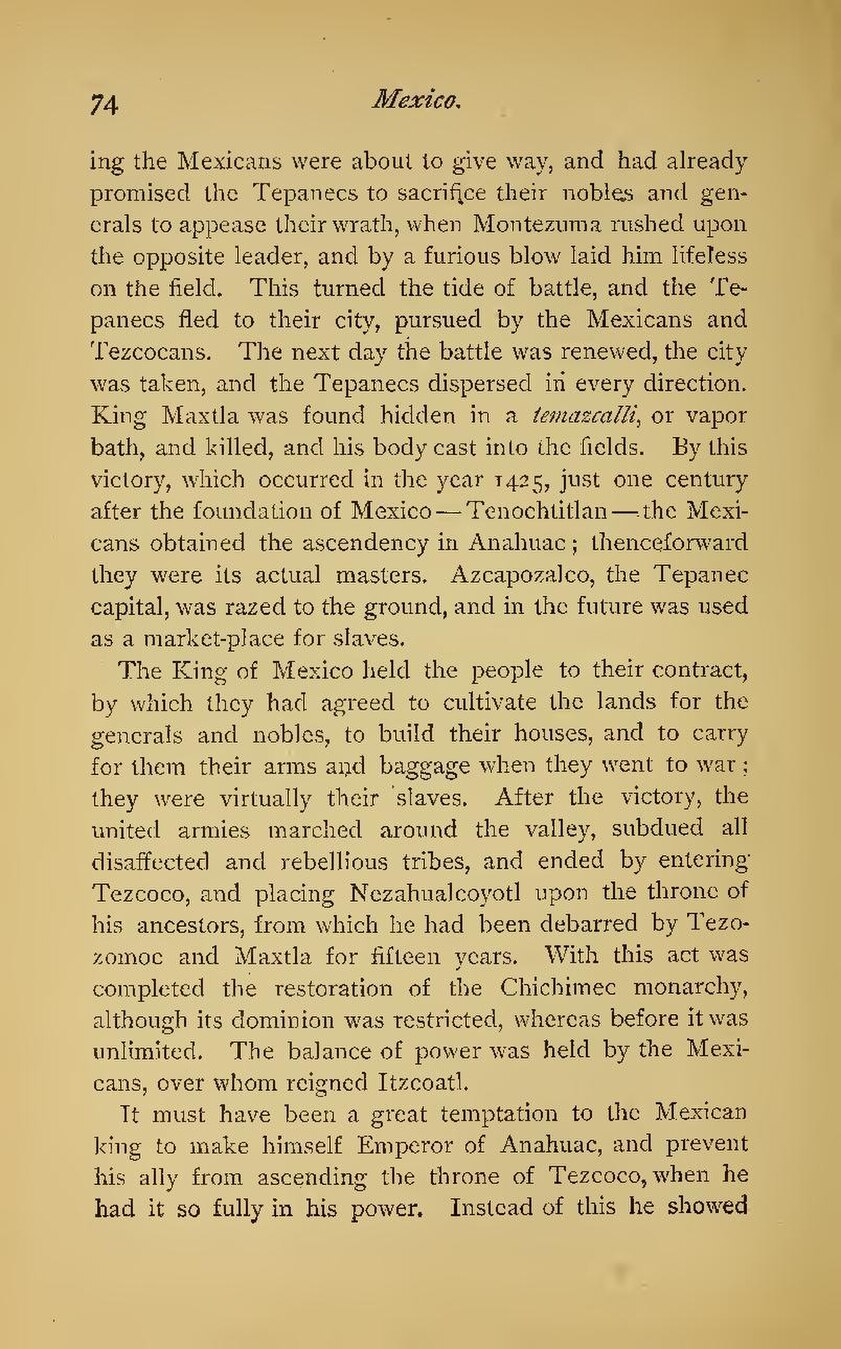ing the Mexicans were about to give way, and had already promised the Tepanecs to sacrifice their nobles and generals to appease their wrath, when Montezuma rushed upon the opposite leader, and by a furious blow laid him lifeless on the field. This turned the tide of battle, and the Tepanecs fled to their city, pursued by the Mexicans and Tezcocans. The next day the battle was renewed, the city was taken, and the Tepanecs dispersed in every direction. King Maxtla was found hidden in a temazcalli, or vapor bath, and killed, and his body cast into the fields. By this victory, which occurred in the year 1425, just one century after the foundation of Mexico—Tenochtitlan—the Mexicans obtained the ascendency in Anahuac; thenceforward they were its actual masters. Azcapozalco, the Tepanec capital, was razed to the ground, and in the future was used as a market-place for slaves.
The King of Mexico held the people to their contract, by which they had agreed to cultivate the lands for the generals and nobles, to build their houses, and to carry for them their arms and baggage when they went to war; they were virtually their slaves. After the victory, the united armies marched around the valley, subdued all disaffected and rebellious tribes, and ended by entering Tezcoco, and placing Nezahualcoyotl upon the throne of his ancestors, from which he had been debarred by Tezozomoc and Maxtla for fifteen years. With this act was completed the restoration of the Chichimec monarchy, although its dominion was restricted, whereas before it was unlimited. The balance of power was held by the Mexicans, over whom reigned Itzcoatl.
It must have been a great temptation to the Mexican king to make himself Emperor of Anahuac, and prevent his ally from ascending the throne of Tezcoco, when he had it so fully in his power. Instead of this he showed
